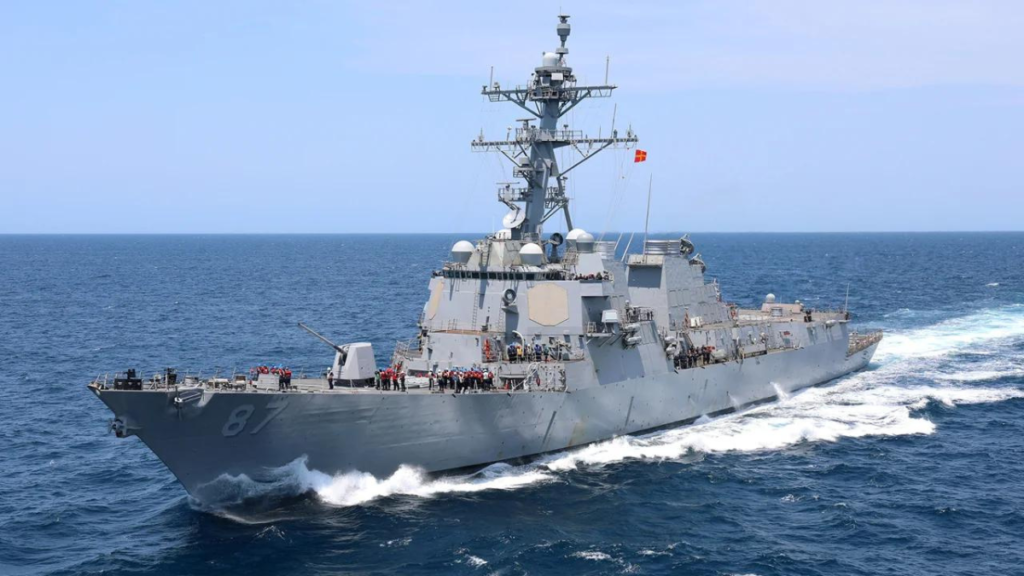Two ballistic missiles were launched from Houthi rebel-controlled Yemen towards a US destroyer in the Gulf of Aden. The incident occurred after the US Navy responded to a distress call from the commercial tanker “Central Park,” which had been seized by armed individuals. The US Navy demanded the release of the vessel, and five armed individuals disembarked from it. The USS Mason pursued the attackers, leading to their eventual surrender. The missile attack on the USS Mason was the latest in a series of incidents that have heightened regional tensions. Since the Hamas attacks, Iran-backed Houthi forces have targeted US assets and Israel. The US has intercepted cruise missiles and attack drones launched by the Houthis, underscoring the complexity of the security situation. The Houthi threat and broader geopolitical dynamics necessitate a vigilant and strategic approach to prevent further escalation in the region.
The Central Park Distress Call
The Central Park, a tanker carrying phosphoric acid, raised an alarm when its crew reported being under attack from an unknown entity. The distress call prompted the US Navy to take action, with the USS Mason, a guided-missile destroyer, and allied ships from a counter-piracy task force responding swiftly to the scene.
Upon arrival, the US forces demanded the release of the vessel. Subsequently, five armed individuals disembarked from the ship, attempting to escape via a small boat. The USS Mason pursued the attackers, leading to their eventual surrender.
Missile Attack on US Warship
In a troubling development, two ballistic missiles were fired from Houthi rebel-controlled areas in Yemen towards the general location of the USS Mason and the Central Park. The missiles landed approximately ten nautical miles from the ships in the Gulf of Aden. Fortunately, there were no reported injuries or damage to either the Central Park or the USS Mason.
Houthi Background and Motivations
The Houthi rebels, a Shia political and military organization in Yemen, have been actively engaged in a civil war against a coalition backed by Saudi Arabia. Their recent attacks against US interests and Israel have raised concerns about the widening implications of the Israel-Hamas conflict. The Houthis have expressed support for the Palestinians, organizing protests against Israel’s actions in Gaza.
US Response and Maritime Security
General Erik Kurilla, commander of US Central Command, emphasized the importance of maritime domain security for regional stability. The US will continue to collaborate with allies and partners to ensure the safety of international shipping lanes. Despite the challenges posed by Iranian-backed groups in the region, the US aims to prevent the conflict from escalating further.
Ongoing Regional Tensions
The missile attack on the US destroyer is the latest in a series of incidents that have heightened tensions in the region. Since the October 7 Hamas attacks, Iran-backed Houthi forces have targeted US assets and Israel. The US has intercepted cruise missiles and attack drones launched by the Houthis, underscoring the complexity of the security situation.
Houthi Intentions and Warnings
Houthi naval forces recently issued a warning to ships flying the Israeli flag or managed by Israeli companies, vowing to persist in military operations until Israel’s perceived aggression against Gaza ceases. The group considers any military units providing protection to Israeli ships as legitimate targets for Houthi operations.
Conclusion
The missile attack on the US destroyer following the distress call from the Central Park underscores the precarious nature of the security situation in the Gulf of Aden. As regional tensions persist, the US and its allies face ongoing challenges in maintaining stability and safeguarding international shipping lanes. The Houthi threat, coupled with broader geopolitical dynamics, necessitates a vigilant and strategic approach to prevent further escalation in the region.







